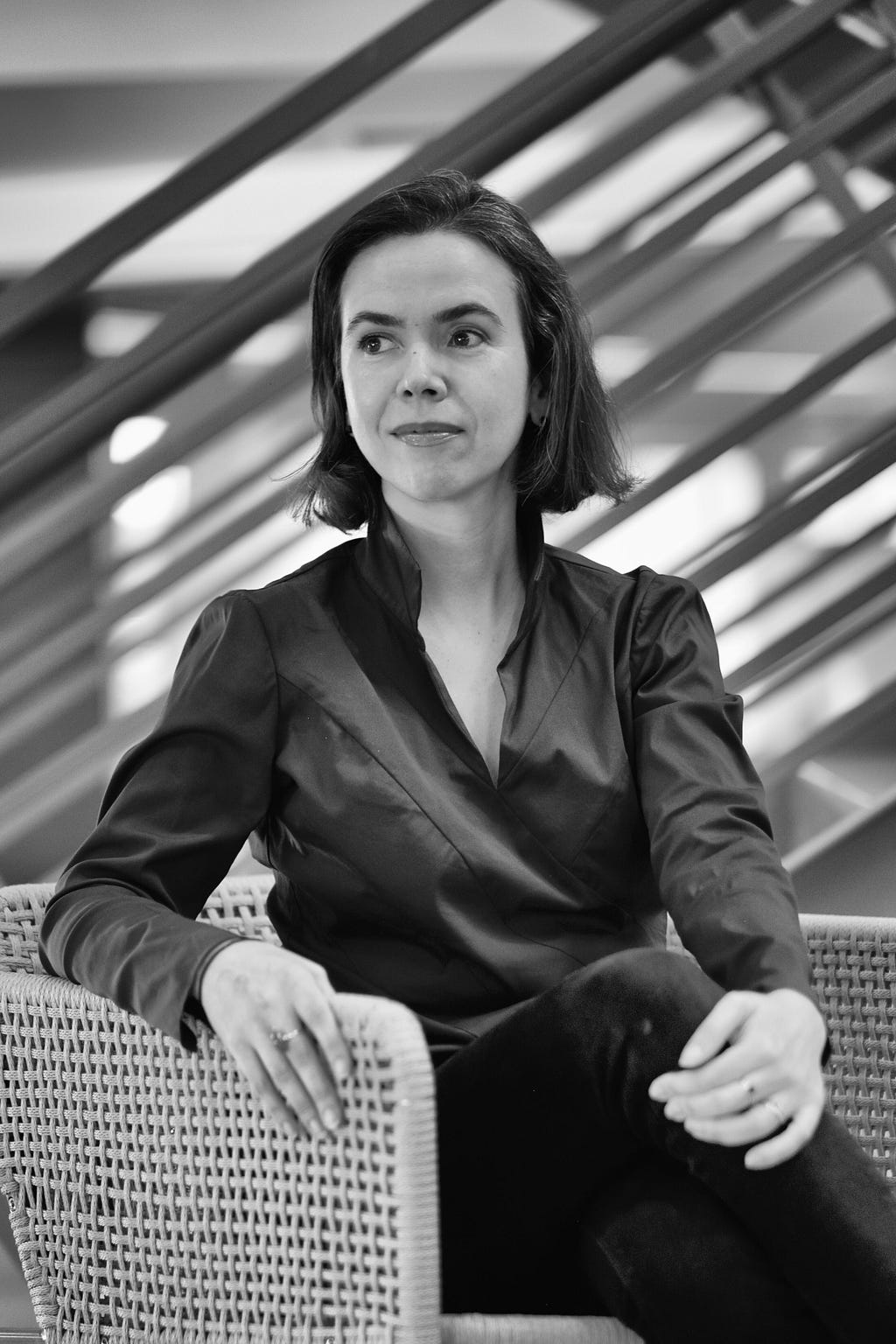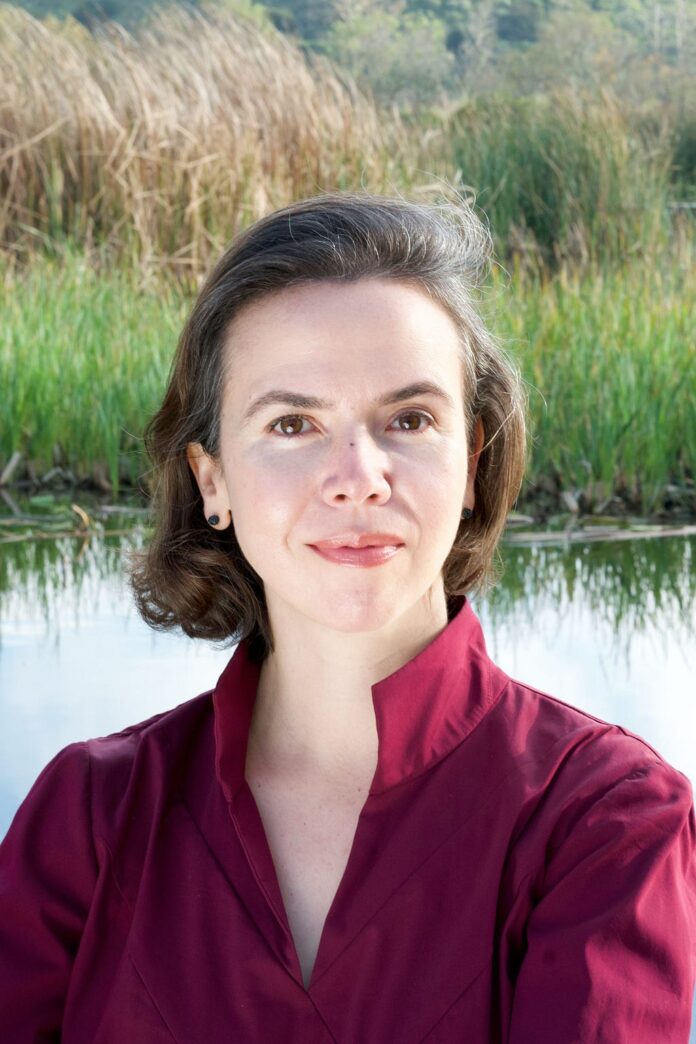Social Impact Heroes Helping Our Planet: Why & How Brigette Allen Of The Circle Tales Is Helping To Change Our World
An Interview With Martita Mestey
You don’t have to “fake it until you make it.” It’s easier to connect with your tribe by being vulnerable and authentic.
As a part of my series about “individuals and organizations making an important social impact”, I had the pleasure of interviewing Brigette Allen.
Brigette Allen is a sustainability and environmental expert and creator behind The Circle Tales, a series of illustrated picture books, activities and videos that encourage children to find inventive solutions to environmental issues. Brigette is a former investment banker, venture capitalist and Director of Partnerships for Plastic Oceans International who now runs a consultancy business to help personal care, food and beverage, pharmaceutical and travel companies implement scalable solutions to the single-use plastic problem. She is the co-author of Living Without Plastic (Artisan 2020) and her passion is environmental change through storytelling and to write books with practical tips for people to incorporate into their daily lives.
Thank you so much for doing this with us! Before we dig in, our readers would like to get to know you a bit. Can you tell us a bit about how you grew up?
I spent my formative years in Europe and South America because of my father’s job. He was a diplomat, so moving to a new country every two years was normal for us. By the time I was 18, I had lived in 7 countries. The experience taught me early on to read people’s facial expressions and body language since I couldn’t always understand what people were saying. Connecting with people outside a common language or culture was humbling and beautiful. I learned the human experience is universal regardless of age, language, or culture.
You are currently leading a social impact organization that is making a difference for our planet. Can you tell us a bit about what you and your organization are trying to change in our world today?
The Circle Tales is a series of picture books and worksheets that inspire children ages 4–8 to develop inventive solutions around waste and climate change. C Train is the first book in the series that introduces children to repurposing something at the end of its “useful life.” Our goal with the book and the series is to harness children’s magical and positive energy toward rethinking materials so that as they become engineers, environmentalists, entrepreneurs, or anything else, they will create and design more intentionally and mindful of its impact. If the last 70 years have taught us anything, we don’t always get it right around waste and reuse. My vision with the series is to think creatively about our everyday choices and explore repurposing in new and inventive ways.
Can you tell us the backstory about what inspired you to originally feel passionate about this cause?
My first wake-up call about the waste problem was watching a scene from A Plastic Ocean, where an albatross dies from overeating plastic. Plastic is a durable material that lasts for hundreds of years, but more than half of it is used for a few minutes before it’s thrown away. But where is away? Most plastic winds up in a landfill or the environment. After watching the film, I quit my job in finance and started working for the then-newly formed non-profit Plastic Oceans International to spread the message of how plastic impacts the ocean.
Many of us have ideas, dreams, and passions, but never manifest them. They don’t get up and just do it. But you did. Was there an “Aha Moment” that made you decide that you were actually going to step up and do it? What was that final trigger?
The “Aha Moment’ that made me create The Circle Tales and C Train, the first book in the series, happened when my then 5-year-old niece Margaux and I walked by the LA river. Margeaux noticed plastic bottles and other waste floating next to the ducks, angering her to the point where she launched an impromptu cleanup and started rattling off ways to avoid single-use plastic. Around the same time, I had read an NYT about phytomining in Malaysia, a promising technique that proposes to mine metals from plants rather than extracting metal through dirty smelters. Phytomining would not only avoid the need for smelters, but forests would remain intact, allowing trees to sequester carbon while preserving its biodiversity. Reading the article, I pictured Margeaux learning about these trees and countless other nature-based solutions. I wondered, what if children learned from a young age about materials and their life cycle?
Many people don’t know the steps to take to start a new organization. What are some of the things or steps you took to get your project started?
After I decided to publish C Train, the first step for me was to build a website with a simple but clear message to serve as a guide. It also made the project more tangible and something I would have to commit to instead of just talking about it.
Can you share the most interesting story that happened to you since you began leading your company or organization?
No single story sticks out since I started leading the organization, but I was surprised by the amount of support and willingness of people to help because they believed in our mission.
It has been said that sometimes our mistakes can be our greatest teachers. Do you have a story about a humorous mistake that you made when you were first starting and the lesson you learned from that?
I have made many mistakes on the journey of creating a publishing company and C Train, from not knowing how many pages to print for a children’s picture book to negotiating contracts to figuring out how to navigate Amazon and Shopify. My biggest mistake was waiting so long to launch. Nowadays, it’s easier for authors and creators to publish books on their own.
None of us can be successful without some help along the way. Did you have mentors or cheerleaders who helped you to succeed? Can you tell us a story about their influence?
There have been so many people who have been both mentors and cheerleaders, helping me succeed. We pitched C Train to 30+ publishers, but they all passed. I didn’t give up on the idea of bringing C Train to life, so I started a crowdfunding campaign to illustrate, edit and print the book. My friends and family helped me reach my funding goal.
Are there three things the community, society, or politicians can do to help you address the root of the problem you are trying to solve?
The first step that the community, society, and politicians can take to help address the problem of waste is to acknowledge that everyone needs to play a role; government, corporations, and consumers alike need to pitch in, and we can’t blame or expect the problem to be solved by just one group. Politicians should enact laws that promote and support a more circular system. Corporations should use materials that are less damaging to the environment. Consumers should question what will become of the materials they buy once they no longer need them.
How would you articulate how a business can become more profitable by being more sustainable and more environmentally conscious? Can you share a story or example?
There are so many ways for a business to be more profitable by being more sustainable and environmentally conscious. A few years ago, I worked with a bank to implement a reusable model in the common areas of their offices. Swapping disposable plastic cups, coffee pods, water bottles, etc., for reusables is not only more sustainable, but it’s also more cost-effective in the long run. It requires an upfront cost or initial investment, but there are loans that support this type of investment. The biggest challenge to overcome isn’t always the financial cost but building buy-in from everyone in your organization. It’s hard to shake the convenience of something being ‘disposable’ when you’ve grown accustomed to it.

What are your “5 things I wish someone told me when I first started” and why? Please share a story or example for each.
The 5 things I wish someone had told me when I first started are,
- You don’t have to “fake it until you make it.” It’s easier to connect with your tribe by being vulnerable and authentic.
- Start small and it doesn’t have to be perfect to launch.
- Being patient is the key to any venture.
- Figure out a good marketing strategy to reach your intended audience.
- There is always something new to learn and it’s okay to make mistakes.
If you could tell other young people one thing about why they should consider making a positive impact on our environment or society, like you, what would you tell them?
Every individual action, no matter how small, counts because our efforts can be powerful collectively.
Can you please give us your favorite “Life Lesson Quote”? Can you share how that was relevant to you in your life?
My favorite “Life Lesson Quote” is by Rumi “What you seek is seeking you.” It’s relevant to my life because things will unfold when we listen to our intuition about what inspires us; we must trust that it will happen if we listen.
Is there a person in the world, or in the US with whom you would like to have a private breakfast or lunch with, and why? He or she might just see this, especially if we tag them. 🙂
If there is a person in the world that I would like to have a private breakfast or lunch, it would be Al Gore. I would ask him what inspired him to persevere in the face of so much criticism and how he overcame those obstacles.
How can our readers follow you online?
Readers can follow us on Instagram @thecircletales_ or learn more about the book and the worksheets on our website. They can also subscribe to our newsletter and stay updated on the latest worksheets and books. C Train’s official release date is June 8th so be sure to get a copy either on Amazon or our website.
This was very meaningful, thank you so much. We wish you only continued success on your great work!
Social Impact Heroes Helping Our Planet: Why & How Brigette Allen Of The Circle Tales Is Helping To… was originally published in Authority Magazine on Medium, where people are continuing the conversation by highlighting and responding to this story.


